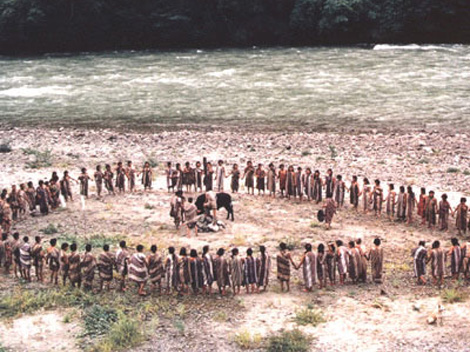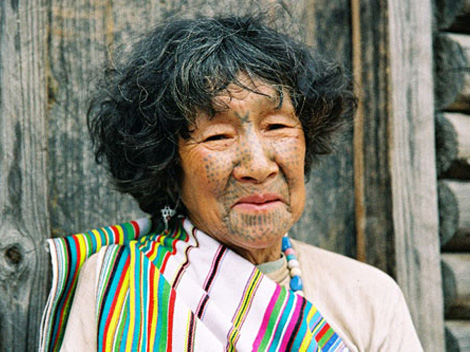Kaquewa Festival of Dulong Ethnic Group, spreading in all the villages and stockaded villages in the Dulongjiang River Watershed of Gongshan Derung-Nu Autonomous County of the Nujiang Lisu Autonomous Prefecture in Yunnan Province, is the New Year of Dulong people in this area. The Kaquewa Festival is not on a fixed day, and it is an auspicious day selected by the elders in villages in the last month of a year. Usually this festival is held in the end of the twelfth month of the lunar year or the beginning of the first month of the next lunar year, and it lasts at least 3 days, and even lasts 9 days at most.

Since 1991, every January 10th of Gregorian calendar is set down as Dulong ethnic group's Kaquewa Festival. The Dulong people start the Kaquewa Festival successively: the festival is firstly started in the upper reaches of Dulongjiang River, then it moves to the middle reaches and then to the lower reaches, so all the villages are involved in the celebration of festivals one after another, and the Kaquewa Festival in Dulong villages of the whole Dulongjiang River watershed usually lasts for one month.

When it is approaching the festival, all families invite their relatives and friends by means of "tying knots". The festival has a variety of ceremonial activities including "offer sacrifices to mountain god", "shoot human-face animal", "send the message via wood carving", "Guozhuang Dance", "visits to relatives and friends", "burn pine needles in fire pit to pray for auspiciousness", "drink the Muluo wine", "song & dance party" and "butcher cows", among which "banquet of butchering cows" is the most impressive and convivial activity.
On the first day of the festival, every family hangs up the colorful blanket. On the morning, the people hang streamers in front of their wooden houses and burn pine branches as well as beat gongs to celebrate the annual Kaquewa Festival. In the evening, every family prepares wine and meat and other food at home, and the whole family indulge themselves in drinking and eating, meanwhile they make divinations and pray for the abundant harvest in the coming year, in addition, youngsters gather in each family alternately to dance as congratulations.
On the next day, the Dulong people make sacrifice to the mountain gods. They make mountain gods and different kinds of wild animals from buckwheat flour, and go to their clan's fixed place to offer sacrifice in an attempt to bring peace and health for the coming year. The sacrifice place is usually in the thickly wooded flat ground, and every family pile up a stack of stones as an altar, and some families would like to set up pine branches as a substitute.
On the third day, the ritual of "butcher cows to offer sacrifice to Heaven" is held to pray for a flourishing population and livestock and an abundant harvest of all crops. And this ritual is the climax of the whole festival. The women put Dulong blankets on oblation cows and hang strings of colorful beads on cow horns, and after they lock the cows to the columns, all of the people begin dance around the cows. The butchers holding spears or bamboo lances enter into the ground, bend their arms around each other's shoulders to drink up a bowl of "one-heart liquor", and then begin dance and butchering cows. At the mean time, the crowd are enclosing a circle around the square and beating gongs and waving swords and bows. What a spectacle of cheerful singing and dance! After the cows fall down, they offer sacrifice and make divinations for the cow tongues, and then all the people, old and young, received a portion of beef. Generally, they cook the beef on the spot and eat and drink while sing simultaneously to express congratulations. They eat while drinking, sing while dancing, and even carry cow heads on their backs to perform the "cow head dance"! The "banquet of butchering cows" reaches its climax!
As the most representative activity of Dulong ethnic group, the age-old Kaquewa Festival is closely related to the clanship.





